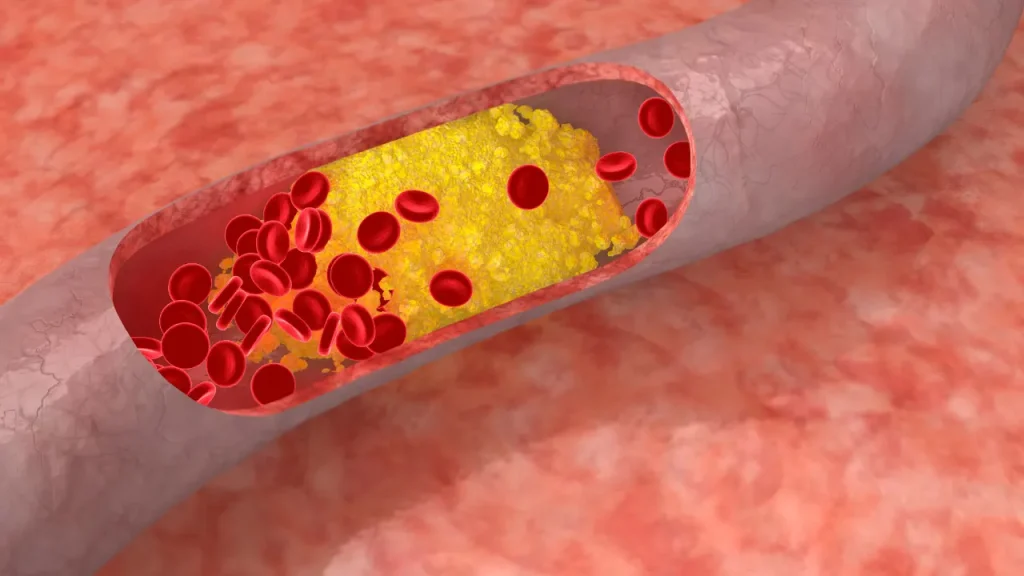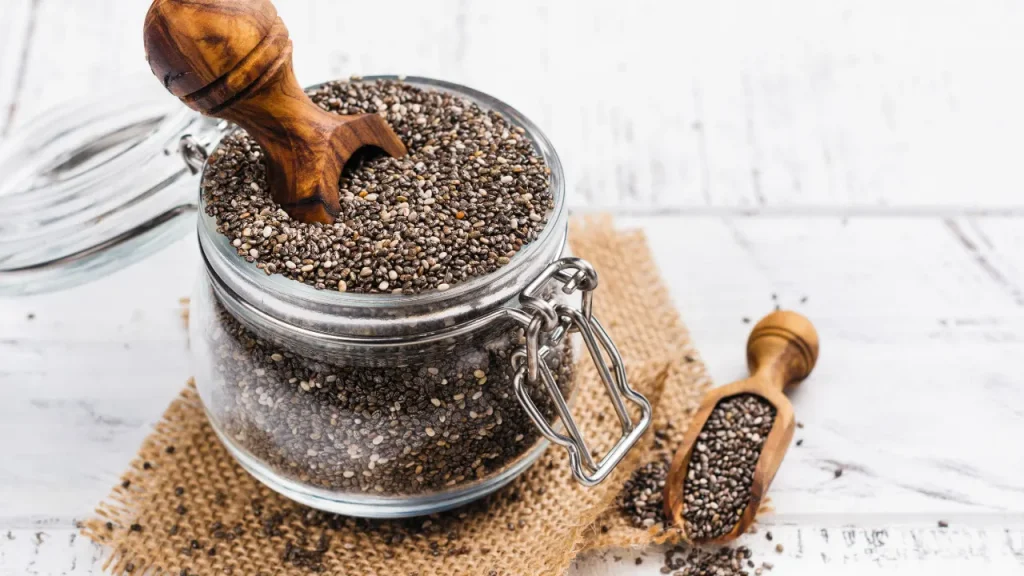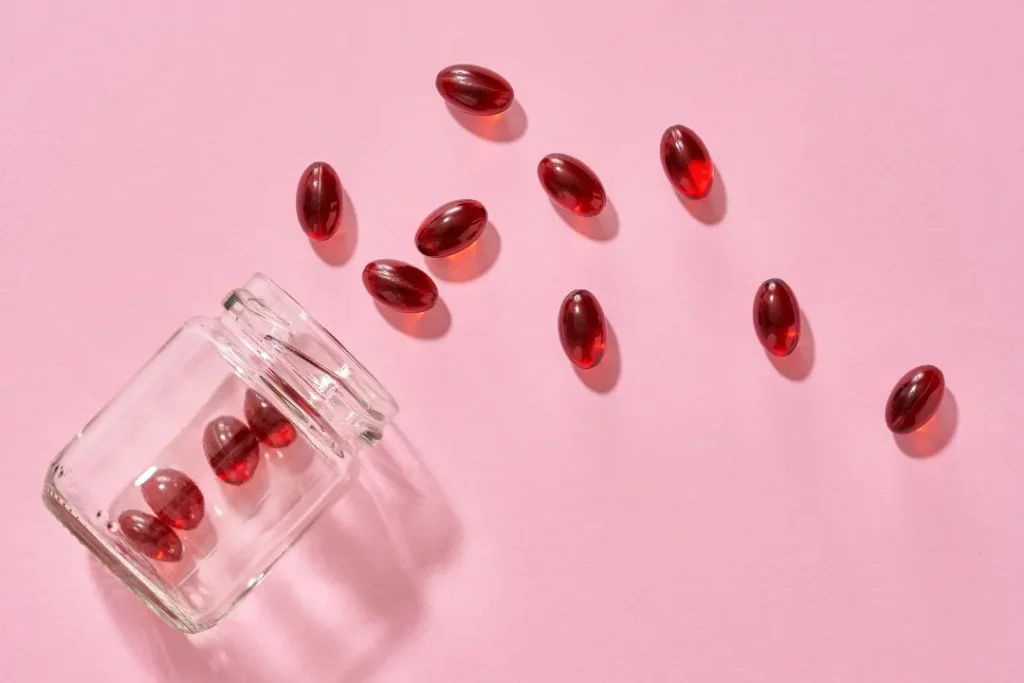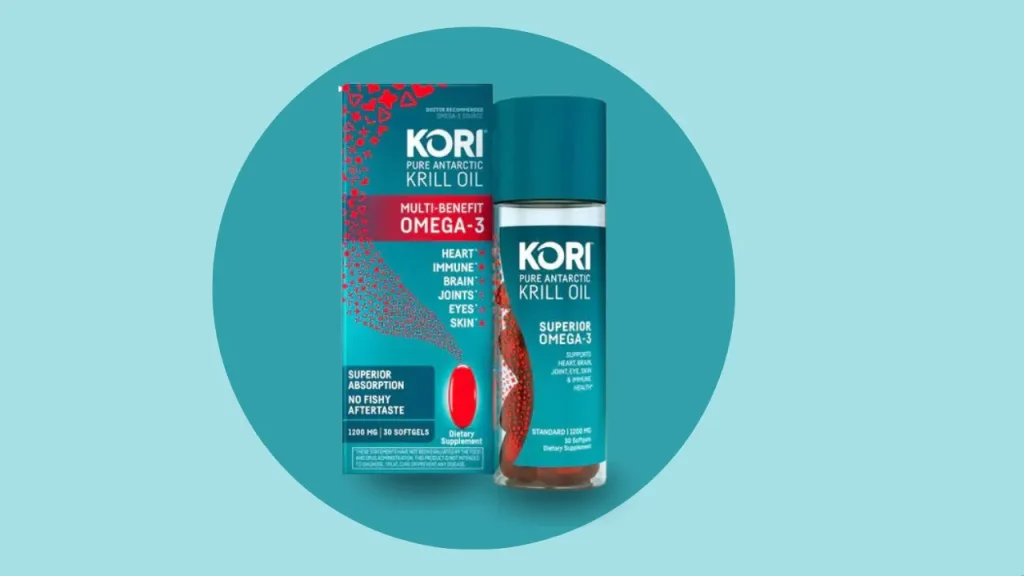Help Balance Your Cholesterol Levels With the Optimal Krill Oil Supplement: Bronson Premium 1000 mg Krill Oil Capsules vs. Kori Krill Oil Softgels 1200 mg
High cholesterol levels represent a significant health challenge in the United States, contributing to a myriad of cardiovascular issues. According to the Centers for Disease Control and Prevention (CDC), about 93 million adults in the United States aged 20 or older have total cholesterol levels higher than 200 mg/dL, a value that is considered unhealthy.
The impact of high cholesterol is substantial. It is a major risk factor for coronary heart disease, the most common type of heart disease. It can also increase the risk of atherosclerosis, a condition where cholesterol-laden plaques build up in the arteries, narrowing them and restricting blood flow to the heart. That can result in chest pain (angina) or a heart attack. High cholesterol has also been linked to peripheral artery disease (PAD), where the arteries that supply blood to the arms and legs become narrowed, causing pain and fatigue while walking.
An increasing number of people are turning to omega-3 supplements to manage and reduce their cholesterol levels. Omega-3 fatty acids, specifically EPA (eicosapentaenoic acid) and DHA (docosahexaenoic acid), have garnered attention for their potential to enhance heart health by reducing levels of triglycerides and lowering the risk of plaque formation in arteries. Numerous studies suggest that these essential fatty acids can play a role in maintaining healthy cholesterol levels.
Omega-3 supplements offer a convenient and concentrated way to incorporate these crucial fatty acids into your daily routine, potentially aiding in managing cholesterol and promoting overall cardiovascular well-being. We’ll look at two leading omega-3 supplements, Bronson Pure Premium 1000 mg Krill Oil Capsules and Kori Krill Oil Softgels 1200 mg, so that you can make an informed purchase decision.
You May Also Like:
CBD for Recovery and Relief: 3 Massive Post-Workout Benefits
The Mycelium vs. Fruiting Body and 5 Great Ways to Know if You’re Getting…
Help Balance Your Cholesterol Levels With the Optimal Krill Oil Supplement: Bronson Premium 1000 mg Krill Oil Capsules vs. Kori Krill Oil Softgels 1200 mg is an original (HisHealthMag) article.
1000 mg krill oil capsules:
The issue of high cholesterol
Cholesterol, often perceived negatively, is an essential fatty substance found in the blood and cells of the human body. It plays a crucial role in building cell membranes, producing hormones like estrogen and testosterone, and creating compounds that aid digestion. Cholesterol is carried through the bloodstream in lipoproteins, including low-density lipoprotein (LDL) and high-density lipoprotein (HDL). These lipoproteins are often referred to as “bad” (LDL) and “good” (HDL) cholesterol, respectively.
An imbalance in these cholesterol levels can lead to health problems. High LDL cholesterol levels can cause fatty deposits to accumulate in the walls of arteries, forming plaques that narrow and harden the arteries in a condition known as atherosclerosis. This atherosclerosis restricts blood flow and can lead to various cardiovascular issues, including heart disease, stroke, and peripheral artery disease. When these plaques rupture, they can trigger blood clots that may block vital arteries, resulting in severe or fatal consequences.
Conversely, HDL cholesterol helps remove LDL cholesterol from the bloodstream and transport it back to the liver, where it can be broken down and eliminated from the body. Hence, higher HDL cholesterol levels are considered beneficial, potentially reducing the risk of heart disease.

1000 mg krill oil capsules:
Omega-3 fatty acids as a potential mitigator
Omega-3 fatty acids, including eicosapentaenoic acid (EPA) and docosahexaenoic acid (DHA), are essential polyunsaturated fats crucial for optimal health. EPA and DHA are primarily found in certain types of fatty fish, algae, and to a lesser extent, in various plant-based sources like flaxseeds, chia seeds, and walnuts.
EPA plays a vital role in reducing inflammation within the body. It helps regulate immune responses and supports cardiovascular health by promoting healthy blood flow, reducing blood clotting, and lowering blood pressure. Additionally, EPA is associated with mental health benefits, potentially alleviating symptoms of depression and anxiety.
DHA is a fundamental component of cell membranes in the brain and eyes. It’s critical for brain development and function, particularly in infants and during pregnancy. DHA supports cognitive performance, memory, and learning throughout life. It’s also essential for vision, helping to maintain good eyesight.
Supplementing with omega-3 fatty acids, particularly EPA and DHA, can offer various health benefits. They are known to reduce triglycerides, a type of fat in the blood, which is a risk factor for heart disease. EPA and DHA can also help increase HDL cholesterol, the “good” cholesterol, leading to better cardiovascular health. They may help manage blood pressure and reduce inflammation, benefiting individuals with chronic inflammatory conditions.
When it comes to cholesterol, supplementing with omega-3 fatty acids can potentially help balance cholesterol levels. They tend to lower LDL cholesterol, the “bad” cholesterol associated with atherosclerosis and heart disease. Additionally, omega-3 fatty acids may improve the HDL to LDL cholesterol ratio, contributing to a more heart-healthy profile.

1000 mg krill oil capsules:
krill oil, a potent source of omega-3
Krill oil, derived from small shrimp-like marine crustaceans called krill, is increasingly recognized as a superior source of omega-3 fatty acids. What sets krill oil apart is its unique composition. It contains a significant amount of EPA (eicosapentaenoic acid) and DHA (docosahexaenoic acid), the two primary forms of omega-3 fatty acids crucial for various bodily functions.
One key advantage of krill oil over traditional fish oil is its phospholipid structure. The omega-3 fatty acids in krill oil are attached to phospholipids, which are the building blocks of cell membranes. This composition enhances their absorption and utilization within the body compared to the triglyceride structure found in fish oil. As a result, people may require a lower dose of krill oil to achieve the same beneficial effects as a higher dose of fish oil.
In terms of managing high cholesterol, krill oil shows promise. EPA and DHA in omega-3 fatty acids can help balance cholesterol levels by increasing HDL (high-density lipoprotein or “good” cholesterol) and reducing LDL (low-density lipoprotein or “bad” cholesterol). These actions contribute to a healthier cholesterol profile, vital for cardiovascular health and mitigating the risks associated with high cholesterol, such as heart disease and stroke.
1000 mg krill oil capsules:
Ingredient quality
Bronson Pure Premium 1000 mg Krill Oil Capsules and Kori Krill Oil Softgels 1200 mg are considered non-GMO verified and third-party tested, signifying a commitment to supplement quality and transparency in the industry. The “Non-GMO verified” label indicates that the ingredients used in these products have been verified as not genetically modified organisms (GMOs). That is crucial as GMOs have been a topic of concern due to potential health and environmental implications. Non-GMO verification assures consumers that the product aligns with their preference for naturally sourced and minimally altered ingredients.
Moreover, the third-party testing aspect is equally significant. Third-party testing involves an independent analysis of the product’s composition, quality, and safety conducted by an external, unbiased organization. This verification ensures that the product meets the claims made by the manufacturer and adheres to industry standards and regulations. It gives consumers extra assurance regarding the product’s purity, potency, and overall quality.
For consumers, these verifications hold immense value. Non-GMO verification signifies a dedication to health-conscious and environmentally responsible sourcing. It assures consumers that the product doesn’t contain genetically modified ingredients, appealing to those seeking natural and unaltered supplements.
On the other hand, third-party testing objectively assesses the product’s quality and safety. It offers transparency and confidence to consumers, assuring them that what they see on the label is indeed what they are getting in the product. It’s a way to ensure that the supplement is free from contaminants, meets the potency claims, and is produced in a manner that aligns with established standards.

1000 mg krill oil capsules:
Commitment to sustainability
Kori Krill Oil Softgels 1200 mg truly stand out in terms of sustainability. Kori Krill Oil’s products are certified sustainable by the Marine Stewardship Council (MSC), reflecting their commitment to preserving marine ecosystems and ensuring responsible fishing practices. Additionally, their consistent “A” rating from the Sustainable Fisheries Partnership for 7 consecutive years underscores their dedication to maintaining a well-managed fishery. Taking their sustainability efforts further, Kori Krill Oil utilizes eco-harvesting technologies, notably a submerged mid-water vacuum protected by a fine mesh net, minimizing impact on non-krill species. This environmentally conscious approach safeguards the marine ecosystem while allowing for an effective krill harvest.
In making conscious choices about sourcing and harvesting, Kori Krill Oil Softgels prioritize a sustainable future and demonstrate a genuine commitment to protecting marine life and habitats, more so than Bronson Pure Premium 1000 mg Krill Oil that gives Kori Krill Oil the edge in terms of sustainability.
1000 mg krill oil capsules:
Which is better?
Kori Krill Oil Softgels 1200 mg stands out as a superior choice to Bronson Pure Premium 1000 mg Krill Oil Capsules due to its exceptional commitment to quality and sustainability. Kori Krill Oil places a paramount emphasis on quality by rigorously ensuring that its krill oil undergoes a stringent processing procedure and is free from artificial flavors, synthetic colors, heavy metals, and pollutants.
Moreover, Kori Krill Oil has received the prestigious certification from Marine Stewardship Council (MSC) and has earned an “A” rating for a well-managed fishery from the Sustainable Fisheries Partnership for seven consecutive years. This commitment to sustainability and stringent quality control measures make Kori Krill Oil Softgels 1200 mg a higher quality and more environmentally responsible product, making it a preferable choice for those seeking a top-tier krill oil supplement.
1000 mg krill oil capsules:
Embracing a low cholesterol lifestyle
Supplementing with omega-3 fatty acids is indeed beneficial for heart health and cholesterol management. However, it’s important to recognize that a holistic approach involving lifestyle adjustments and dietary changes can significantly contribute to lowering cholesterol levels and improving overall well-being.
One of the fundamental lifestyle adjustments is regular exercise. Engaging in physical activities like brisk walking, jogging, swimming, or cycling can help increase high-density lipoprotein (HDL) cholesterol, commonly known as “good” cholesterol, and lower low-density lipoprotein (LDL) cholesterol, often termed “bad” cholesterol. Exercise also aids in weight management, which is another vital part of cholesterol management. Maintaining a healthy weight through a balanced diet and regular exercise can profoundly impact cholesterol levels.
In terms of diet, incorporating heart-healthy foods is essential. Foods rich in soluble fiber, like oats, legumes, fruits, and vegetables, can effectively lower LDL cholesterol. Nuts, especially almonds and walnuts, are packed with monounsaturated fats, omega-3 fatty acids, and fiber, making them excellent choices for heart health. Including fatty fish such as salmon, mackerel, and trout, which are abundant in omega-3s, can further enhance your efforts to reduce cholesterol.
Limiting saturated and trans fats is equally crucial. These fats are primarily found in red meat, full-fat dairy products, processed foods, and fried foods. Reducing their intake helps manage cholesterol levels and supports heart health. Additionally, moderating alcohol consumption and quitting smoking are lifestyle changes that contribute significantly to an improved lipid profile.
Incorporating plant sterols or stanols, often found in fortified foods like margarine, can help block cholesterol absorption in the digestive tract, aiding in cholesterol reduction. A diet focused on whole grains, fruits, vegetables, and lean proteins is fundamental. Moreover, working closely with a healthcare professional, considering your unique health profile, can guide you in making the most effective and personalized dietary and lifestyle choices to optimize your cholesterol levels and overall cardiovascular health.
By incorporating these lifestyle changes and supplementing with high-quality omega-3 supplements like Bronson Pure Premium 1000 mg Krill Oil Capsules and Kori Krill Oil Softgels 1200 mg, cholesterol levels are manageable, and a heart-healthy lifestyle can be easily attained.

For further reading:
HealthCentral: Make Cholesterol-Lowering Habits Stick
Medical News Today: Fish oil for high cholesterol and blood pressure: Does it work?
Harvard Health: 11 foods that can help lower your cholesterol
Important Note: The information contained in this article is for general informational purposes only, and should not be construed as health or medical advice, nor is it intended to diagnose, prevent, treat, or cure any disease or health condition. Before embarking on any diet, fitness regimen, or program of nutritional supplementation, it is advisable to consult your healthcare professional in order to determine its safety and probable efficacy in terms of your individual state of health.
Regarding Nutritional Supplements Or Other Non-Prescription Health Products: If any nutritional supplements or other non-prescription health products are mentioned in the foregoing article, any claims or statements made about them have not been evaluated by the U.S. Food and Drug Administration, and such nutritional supplements or other health products are not intended to diagnose, treat, cure, or prevent any disease.

